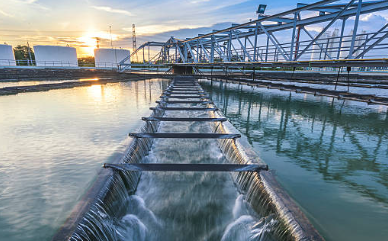How SCADA Integrations Aid Texas Water Treatment Facilities
Water and wastewater treatment facilities throughout Texas face numerous challenges, including maintaining water quality, ensuring regulatory compliance, and meeting the needs of growing populations. To overcome these challenges, many facilities are turning to supervisory control and data acquisition (SCADA) systems and controls. This article will discuss why utilizing SCADA systems and controls is essential for Texas water and wastewater treatment facilities.
Improved Efficiency
SCADA systems and controls enable facilities to automate processes, such as chemical dosing and flow control, which can increase efficiency and reduce costs. By automating processes, operators can focus on tasks that require their attention rather than manually monitoring and adjusting systems. Additionally, SCADA systems can alert operators to potential issues, such as equipment failures or process deviations, allowing them to respond quickly and prevent downtime or system failures.
Increased Data Visibility
SCADA systems and controls provide operators with real-time data on system performance, enabling them to make data-driven decisions. This data can help operators optimize processes, troubleshoot issues, and identify areas for improvement. Additionally, SCADA systems can track historical data, allowing operators to analyze trends and identify potential issues before they occur.
Regulatory Compliance
Water and wastewater treatment facilities are subject to numerous regulations, and failure to comply can result in fines or other penalties. SCADA systems and controls can help facilities stay compliant by ensuring that processes are consistent and meet regulatory standards. Additionally, SCADA systems can log data and provide reports, making demonstrating compliance with regulatory agencies easier.
Improved Safety
SCADA systems and controls can improve safety for both operators and the public. Operators can reduce their exposure to hazardous chemicals and environments by automating processes. Additionally, SCADA systems can alert operators to potential safety issues, such as leaks or system failures, allowing them to respond quickly and prevent potential harm to the public or the environment.
Remote Monitoring and Control
SCADA systems and controls enable facilities to monitor and control systems remotely, which can be especially useful in Texas, where facilities are often located in remote or rural areas. Remote monitoring and control can help facilities respond quickly to issues without needing onsite personnel, reducing response time and costs.
In conclusion, utilizing SCADA systems and controls is essential for Texas's water and wastewater treatment facilities. These systems can improve efficiency, increase data visibility, ensure regulatory compliance, improve safety, and enable remote monitoring and control. By investing in SCADA systems and controls, facilities can improve operations, reduce costs, and better serve their communities.
BLTI has a long and successful history working with water treatment facilities throughout the greater Houston area and the Texas Gulf Coast. If you are interested in learning more about the new SCADA options available to manage your water treatment facilities, contact us, and we are happy to help.
Related Posts
By accepting you will be accessing a service provided by a third-party external to https://blti.com/

